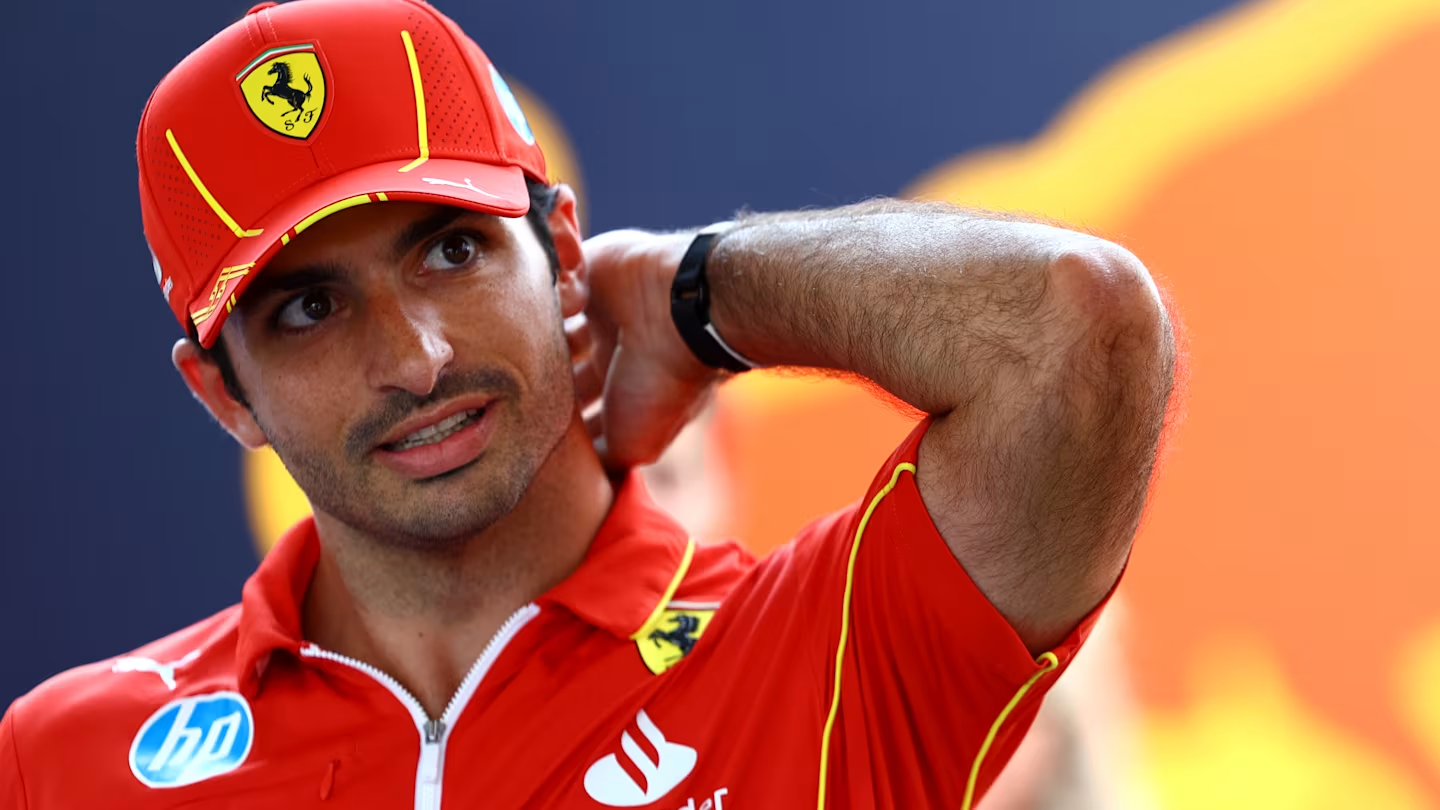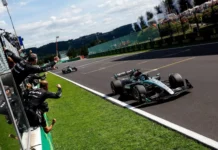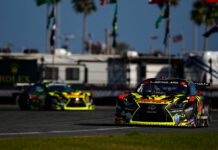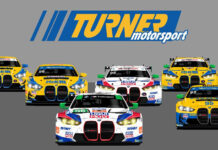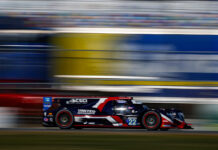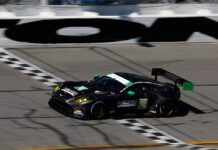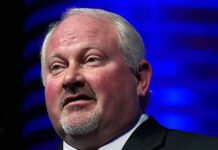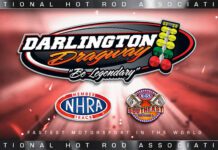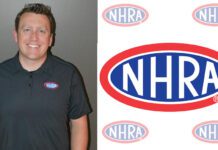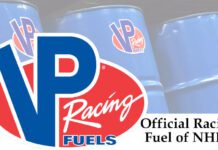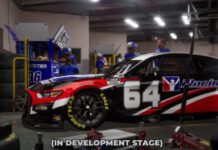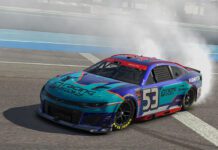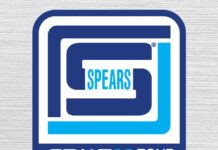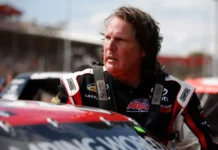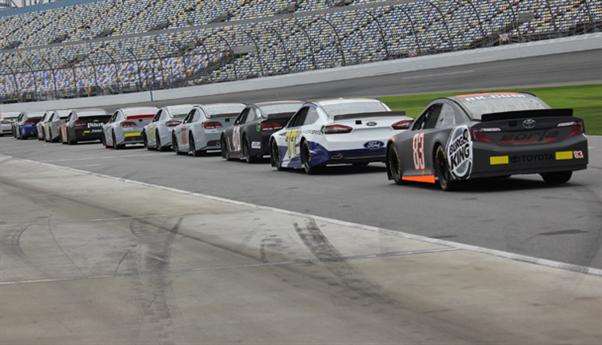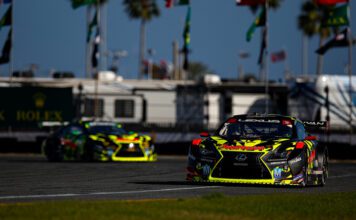If the new Race Team Alliance wants to communicate with NASCAR and its sister company International Speedway Corp., it will have to do so through attorneys.
The alliance of the nine biggest multicar teams in the Sprint Cup Series announced its formation July 7, and it has caused a stir in the racing community as it’s the first time the teams have aligned to work together.
Rob Kauffman, co-owner of Michael Waltrip Racing and chairman of the group, has said the purpose of the group is to work together to use its leverage in landing cheaper costs for common expenses such as travel, insurance and parts. It also would, when asked, serve as a collective voice of the teams, he said.
NASCAR president Mike Helton said Friday there is no animosity between the team owners and NASCAR, although NASCAR has had no conversations with Kauffman as part of the RTA.
“I wanted to dispel the perception of animosity to start with and then back that up with saying we’re going to do business as usual,” Helton said Friday. “I think everybody in the garage area knows how we do our business and the role they play in it, and so we’ll continue to do it that way.”
But apparently no NASCAR officials will be talking directly with the RTA. NASCAR confirmed Wednesday that, in a move they say is being done for legal prudence and not as a sign of animosity, it has directed that all communication between NASCAR and the RTA be done through lawyers.
After Sporting News published a column on the RTA Tuesday saying the development is a sign of an increased lack of trust between NASCAR and the teams and vice versa, Kauffman tweeted that ISC also has issued a lawyer-only edict.
@bobpockrass Add ISC to the ‘Contact through lawyer only’ list. Ok, no problem.
— robert kauffman (@kauffmanrob) July 15, 2014
In an interview Wednesday night, Kauffman did not seem deterred or annoyed over the lawyer-communication policy.
“It’s not an animosity thing, it’s just a formality thing,” Kauffman said. “NASCAR is a big company and they’re very sensitive legally. They’ve had experience (with antitrust) and they want to be very formal and correct in the initial stages. … It’s understandable. Hopefully as time goes on and both sides get used to each other a little bit, those barriers (will) tend to go down. I think it will be fine.”
NASCAR, which sanctions races and runs the series, is a private company owned by the France family, which also controls the majority of the publicly traded stock of track-operating company ISC. They are no strangers to antitrust issues, having settled one lawsuit and won another in the last 10 years.
NASCAR uses the legal firm of Boies, Schiller & Flexner — well-known attorney David Boies (whose notable cases include representing Al Gore in his 2000 election challenge, the NFL in its lockout and the National Basketball Players Association when it was locked out) has represented NASCAR in its two major antitrust lawsuits as well as against NASCAR driver Jeremy Mayfield.
The RTA has hired the legal firm of Jones Day, which provides representation on financial issues to almost half the Fortune 500 companies, such as its representing Reynolds American (R.J. Reynolds) in its acquisition of Lorillard announced Tuesday.
“We’re very careful with how we do things,” Kauffman said.
And they apparently need to be. Gary Roberts, a noted sports law expert and current professor at Indiana University, said last week that the organization could open itself up to a lawsuit depending on how it operates.
There is nothing wrong with the teams working together for better purchasing power as long as the people they purchase from are not dependent solely on NASCAR teams for their business.
The danger comes if the RTA represents the teams in any sort of negotiations with NASCAR and tries to use its collective leverage to force NASCAR’s hand.
“You have a monopolist, NASCAR, dictating terms to a group of entities that it does business with,” Roberts said. “And the entities then (are) saying, ‘We want to get together and create counterveiling market power so we’re on equal footing.’
“It’s not clear whether or not the courts would be sympathetic to that sort of arrangement (by the teams).”
The RTA could have reasonable terms and conditions to join, Roberts said.
“If they’re excluding them because they’re trying to get a competitive advantage and the other competitors don’t have the same access that they do, then that’s a violation (of antitrust law),” Roberts said.
“On the other hand, if they’re excluding the competitors because they have rules and the competitors aren’t willing to conform to those rules, then the courts have held in the last 20 years or so that that’s not a violation.”
According to the SportsBusiness Journal, each of the nine founding members has two delegates, one voting member and one non-voting member. Any multicar team with a car in the top 25 of the points standings can become a voting member, according to the SBJ. The rest would be non-voting members.
Kauffman said last week that any team can join the alliance as long as it has participated in 95 percent of the Cup races over the last two years.
“If you’re a full-time team, trying to run full time, there’s a common set of issues around that,” Kauffman said. “If you’re just going to do the Daytona 500 or one or two races, there’s nothing wrong with that, you just have a different set of issues probably.
“You’re going to have a lot of different things going on at the top of your list than a multicar team trying to manage hundreds of people. So it’s just different.”
Voting members are Kauffman, team owners Chip Ganassi, Rick Hendrick, Joe Gibbs, Richard Childress, Richard Petty, Jack Roush, Roger Penske and Joe Custer (for Stewart-Haas Racing).




